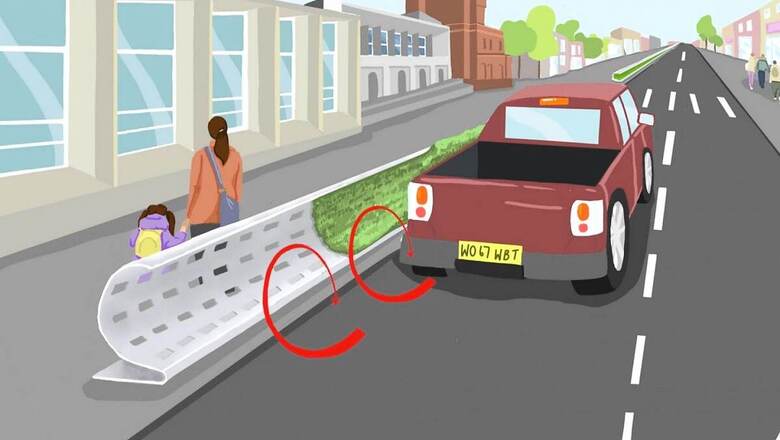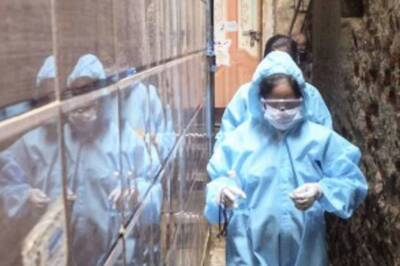
views
Researchers in the UK have come up with urban infrastructure that can help protect people from the damaging effects of air pollution. Thanks to their curved shape, these roadside barriers are designed to protect pedestrians from fine particles from vehicle emissions by deflecting them back towards the road. When watching her child playing in a school playground alongside a busy main road in London, Tilly Collins, a researcher at the Centre for Environmental Policy at Imperial College London, started to worry about the future of children living on such a polluted planet.
As part of her research, Dr Collins realized that fine particles emitted by vehicles were becoming trapped in vortices near roadside walls, making pedestrians — and children — particularly vulnerable. Together with her colleague Huw Woodward, she began investigating types of urban infrastructure that could mitigate these vortex effects and improve air quality for pedestrians.
When working on their anti-pollution barriers, the two researches were inspired by airfield baffles, as well as the curved sound-walls found alongside freeways in Germany and the Netherlands.
Although still a prototype, this kind of urban infrastructure, specially designed to protect pedestrians from pollution, could prove a major first. The way it works is simple: according to the researchers, the curved shape of the barriers helps to disperse and deflect pollutants back towards roads more effectively, potentially improving air quality for pedestrians very quickly and at relatively low cost.
"Air pollution in cities disproportionately affects children and those living in economically-deprived areas near busy roadways. Walls are effective in deflecting particulate matter but the addition of shaping either at the design stage, or as retrofit, improves performance," argue the researchers, whose findings are published in the journal, Cities & Health.
Beyond air quality, these curved barriers may also help reduce noise pollution and could act as scaffolds to increase green infrastructure throughout cities, the researchers state. According to a recent study from scientists at Harvard University, air pollution linked to the combustion of fossil fuels could be responsible for some 6.7 million premature deaths worldwide in 2018.
Read all the Latest News, Breaking News and Coronavirus News here




















Comments
0 comment